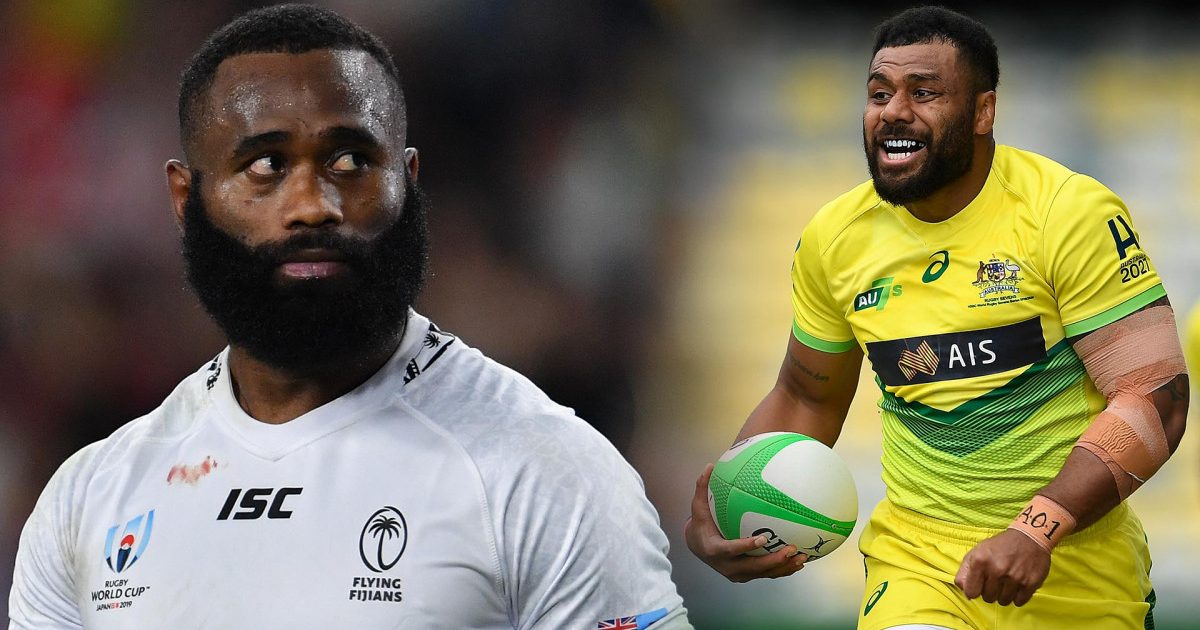Seven rugby sevens stars to watch out for at 2020 Tokyo Olympics

After five years of waiting, the Tokyo Olympics are finally underway, with rugby sevens set to make its second successive appearance at the Games.
The men’s competition will get up and running on July 26 before the women’s competition kicks off three days later, with Fiji and Australia looking to fight off stern competition to preserve their Olympic champion status.
In anticipation of rugby’s return to the Olympics, we have identified seven sevens stars to watch out for as rugby take centre stage at Tokyo Stadium next week.
Samu Kerevi (Australia men)
One of the biggest rugby names at the Tokyo Olympics, former Wallabies midfielder Samu Kerevi has transitioned to the abbreviated form of the game in pursuit of a gold medal.
Having spent the last two years plying his trade in the Top League for Suntory Sungoliath, the 27-year-old will don the yellow jersey of Australia once again after having last represented the country at the 2019 World Cup in Japan.
A physical presence in the midfield, expect Kerevi to be a damaging prospect when given the chance to attack with ball in hand.
Semi Radradra (Fiji men)
Another XV-a-side star, Semi Radradra has returned to the Fijian sevens set-up after three-year hiatus as he dominated the rugby world.
Renowned as one of the game’s best attacking talents, the 29-year-old has pedigree in the sevens circuit, having first debuted for Fiji prior to his rugby league stint in 2011 before returning to the World Sevens Series and the Sevens World Cup in 2018.
Radradra played a starring role for the Flying Fijians at the 2019 World Cup and has been a crucial figure for the Bristol Bears due to his pace and power, both of which will be vital if Fiji are to replicate their gold medal exploits in Tokyo.
Portia Woodman (New Zealand women)
Arguably the best women’s rugby player on the planet, Portia Woodman returns to the Olympics as she aims to go one place better than her silver medal finish at Rio 2016.
Back in action after a lengthy injury lay-off, the 30-year-old comes into the Tokyo Olympics as one of rugby’s most decorated female players with Women’s World Cup, Commonwealth Games and Sevens World Cup titles to her name.
A barnstorming athlete, Woodman packs plenty of power into her 1.70m and 70kg frame, which will be utilised heavily if the Black Ferns Sevens are to live up to their tags as gold medal favourites.
The All Blacks are reportedly set to play in Washington DC for the first time ever in a test match that is expected to earn NZR millions in revenue. #AllBlacks https://t.co/4xvciNyZVt
— RugbyPass (@RugbyPass) July 24, 2021
Charlotte Caslick (Australia women)
One of Australia’s most experienced operators, Charlotte Caslick is back at the Olympics to double down on the gold medal success she and her teammates earned at Rio 2016.
A former international representative in touch rugby who switched to rugby league to play in the women’s NRL last year, the 26-year-old will spearhead Australia’s tilt for back-to-back gold medals.
A five-eighth and fullback for the Sydney Roosters, expect Caslick to act as a playmaker to put her Australian teammates into space throughout the duration of the competition.
Perry Baker (USA men)
Among the fastest players in the rugby world, Perry Baker is set to light up the Tokyo Olympics as the United States target their first medal rugby since 1924.
Of an American football background, the 35-year-old has terrorised defences so much in sevens that he has been named World Rugby Sevens Player of the Year in 2017 and 2018.
With such electric out-and-out pace, Baker is primed to work in tandem with fellow speedster Carlin Isles as the USA looks to deliver on its highly-touted potential.
Greg O’Shea (Ireland men)
Although he has played sevens for Ireland since 2017, Greg O’Shea rose to prominence as a reality TV star when he won Love Island two years ago.
The 26-year-old’s success on British television has amassed him a following of more than 1 million people on Instagram, ranking him as one of rugby’s most popular social media stars alongside the likes of Dan Carter and Sonny Bill Williams.
On the rugby field, O’Shea has become a regular for the Irish as they qualified for both the World Sevens Series and the Olympic Games, so don’t be surprised to see the him ruffle some feathers in Group C.
A former Maori All Blacks star is “excited” to represent Japan at the Tokyo Olympics next week following an eligibility saga last year. #Tokyo2020https://t.co/djBIyqHeSa
— RugbyPass (@RugbyPass) July 24, 2021
Siviwe Soyizwapi (South Africa men)
Blessed with pace and power, Siviwe Soyizwapi’s importance to South Africa’s medal chances has been reflected by his appointment as captain of the Blitzboks for the Tokyo Olympics.
The 28-year-old started his career in the XV-a-side game in the Currie Cup and Super Rugby with the Kings, but hasn’t looked back since converting to sevens full-time in 2016.
With Rosko Specman or Seabelo Senatla absent from South Africa’s, Soyizwapi will be one of the key figures if the Blitzboks are to return to South Africa with another medal after their bronze medal success at Rio 2016.










































